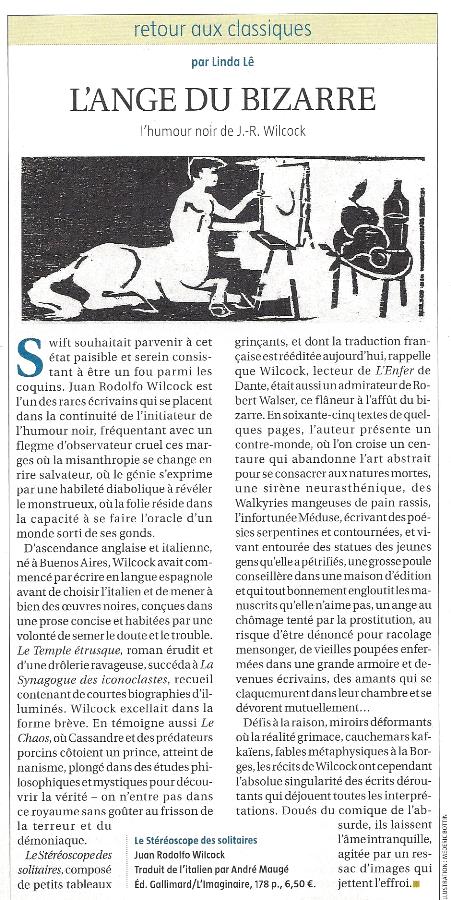|
Bạt, Afterword
Sovereign
Insignificance
Vô Nghĩa Tối Cao, Thần Sầu
FOR THE feuilletonist anything can
be an occasion for a prose piece: a walk in the mountains, a new hairstyle,
an old fountain, shopwindows, a kitten, a carousel, a Parisian newspaper,
an hour of the day. It is, however, the rare feuilletonist, no matter how
fine a quick-sketch artist, who can bestow permanence to reality's ephemera,
which is one reason we tend to ignore miniaturists in prose-to our great
loss in the case of a genius like Robert Walser.
Với 1 tay viết "phén", thì cái gì cũng là dịp để chơi 1 đường
tản văn: 1 cuộc dạo núi, một kiểu tóc mới, 1 cái giếng cổ... Nhưng hiếm,
cực hiếm, là thứ đại gia "tản mạn gia" - dù tuyệt hảo tới cỡ nào trong
cái sự “thoáng 1 phát ngoáy 1 nhát” - người có thể đem đến cho “sự đời
biết rồi khổ lắm nói mãi” [permanence, thường hằng] cái phù du của thực
tại, đây là 1 lý do khiến độc giả bỏ qua thứ viết mini trong tản văn, và,
mất mát lớn lao nhất, là thiên tài Robert Walser.

Tình cờ vớ được số báo ML cũ, về Cái Ác Nazi, trong có bài trên
Thiên Thần của Cái Kỳ Kỳ: Khôi Hài
Đen của Wilcock
Wilcock, cũng cực
mê Robert Walser, kẻ lang thang rình rập cái kỳ kỳ, như Linda Lê diễn tả.
SOMETHING ABOUT WRITING
IF
I'M not mistaken, Balzac, for example, wrote novels nonstop until
the moment that pulled him out of the practice of his profession. Let
us just try and roughly imagine the extent of such a faculty for fantasizing.
For Dostoyevsky, as I believe I should know, it may have been the
same. After publishing a string of comparatively very worthwhile novellas,
Gottfried Keller entered the civil service, which for the next fifteen
years kept him from any further continuous literary work. Adalbert
Stifter, who possessed a lively talent for narrative like an effervescent
spring upon which he drew to his heart's content, held a civil service
post in education. Goethe, this giant, as his life history displays,
poeticized himself into, as it were, a courrlike, that is, administrative
position through works that soared into the ranks of the imperishable.
The existence of a writer is determined by neither success nor acclaim,
but rather depends on his desire or power to tabulate anew again and again.
Balzac apparently did this constantly, Keller not, and undoubtedly there
were reasons why he didn't. I believe the causes as to why some continue
to write on and on and others at times cease their poetic endeavors are,
under certain circumstances, too subtle to be easily defined. External
events are capable of giving a career a certain direction; for example,
the character or incidents in the region of the heart may be worthy of
serious consideration. Some writers present their best work at the beginning
of their strivings only to succumb afterwards to their proclivity, bit
by bit, to flatten out, while we know of quite a few others who strike
us as curious because they happen to start inconspicuously or uncertainly,
but nevertheless precisely for this reason acquire in the course of time
more certitude, superior vision, etc. To which type one gives preference
is left to necessity. Every writer is an aggregate of two people, the citizen
and the artist, to which he, more or less fortunately, resigns himself.
(1930)
Note: Bài
Bạt tuyệt lắm. Tin Văn sẽ
đi liền. Tác giả bài viết, Tom Whalen nhìn ra 1 Walser khác hẳn với
cách nhìn chung, coi ông cùng dòng với Musil, Broch hay Thomas
Mann, thí dụ.
|